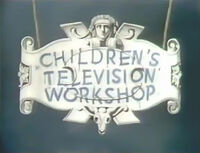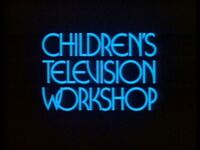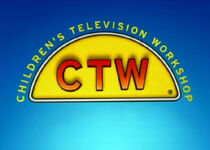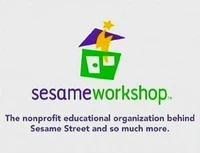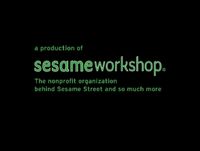m (...nevermind) |
(Pic serves no purpose) |
||
| (16 intermediate revisions by 12 users not shown) | |||
| Line 1: | Line 1: | ||
| − | [[Image:Sesameworkshop2008.jpg|thumb|300px|Sesame Workshop logo]] |
+ | [[Image:Sesameworkshop2008.jpg|thumb|300px|Sesame Workshop logo featuring Elmo]] |
'''Sesame Workshop''' (formerly the Children's Television Workshop, or CTW) is the owner and sole proprietor of ''[[Sesame Street]]'' as well as television properties ''[[Dragon Tales]]'', ''[[Amy Tan|Sagwa, the Chinese Siamese Cat]]'', ''[[The Electric Company]]'', ''[[3-2-1 Contact]]'', ''[[Square One TV]]'' and ''[[Big Bag]]''. |
'''Sesame Workshop''' (formerly the Children's Television Workshop, or CTW) is the owner and sole proprietor of ''[[Sesame Street]]'' as well as television properties ''[[Dragon Tales]]'', ''[[Amy Tan|Sagwa, the Chinese Siamese Cat]]'', ''[[The Electric Company]]'', ''[[3-2-1 Contact]]'', ''[[Square One TV]]'' and ''[[Big Bag]]''. |
||
| − | |||
The CTW was founded in 1968 by [[Joan Ganz Cooney]] and [[Lloyd Morrisett]] as a non-profit corporation whose original purpose was to develop and produced an educational television show for preschool children, particularly those from disadvantaged backgrounds. Michael Davis writes in ''[[Street Gang]]'' that "Regal twin portraits of Morrisett and Joan Cooney adorn the entranceway to the Workshops corporate offices at One Lincoln Plaza...", underscoring Morrisett's importance as co-founder of the Workshop. |
The CTW was founded in 1968 by [[Joan Ganz Cooney]] and [[Lloyd Morrisett]] as a non-profit corporation whose original purpose was to develop and produced an educational television show for preschool children, particularly those from disadvantaged backgrounds. Michael Davis writes in ''[[Street Gang]]'' that "Regal twin portraits of Morrisett and Joan Cooney adorn the entranceway to the Workshops corporate offices at One Lincoln Plaza...", underscoring Morrisett's importance as co-founder of the Workshop. |
||
| − | The first show that CTW produced was ''Sesame Street'', which proved hugely successful. The Carnegie Corporation, the US Office of Education, and Ford Foundation provided the initial funding for the project. |
+ | The first show that CTW produced was ''Sesame Street'', which proved hugely successful. The Carnegie Corporation, the US Office of Education, and Ford Foundation provided the initial funding for the project. A few years after the success of ''Sesame Street'', The Jim Henson Company worked with the company to develop another series, ''[[The Affect Show]]''. However, ''The Affect Show'' didn't get past planning stages. |
| − | In 1999, the Children's Televison Workshop, along with [[Nickelodeon]], a division of [[MTV|MTV Networks]] owned by Viacom, launched a kids' channel called [[Noggin]], featuring many classic kids' shows from both companies. Sesame Workshop sold its half of the channel to Viacom |
+ | In 1999, the Children's Televison Workshop, along with [[Nickelodeon]], a division of [[MTV|MTV Networks]] owned by Viacom, launched a kids' channel called [[Noggin]], featuring many classic kids' shows from both companies. Sesame Workshop later sold its half of the channel to Viacom on August 7, 2002. |
| − | In 2000, the Children's Television Workshop changed its name to Sesame Workshop; by then, the company had expanded beyond television. <ref>[http://www.muppetcentral.com/news/2000/060500.shtml |
+ | In 2000, the Children's Television Workshop changed its name to Sesame Workshop; by then, the company had expanded beyond television. <ref>[http://www.muppetcentral.com/news/2000/060500.shtml "CTW changes name to Sesame Workshop"] ''Reuters'' June 5, 2000</ref> In concert with this name change, Sesame Workshop began to eliminate all references to CTW, such as cutting out the references in ''Sesame Street'''s closing credits and replacing all the old CTW logos on TV with the current Sesame Workshop animated logo, and replacing the "CTW" on the Sesame Street sign with "123". In December of the same year, [[The Jim Henson Company]] (then under ownership of the German media firm, [[EM.TV]]) sold the rights to the [[:Category:Sesame Street Characters|''Sesame Street'' Muppets]] for $180 million, giving Sesame Workshop full ownership of the ''Sesame Street'' Muppets.<ref>[http://www.muppetcentral.com/news/2000/120400.shtml "Sesame Workshop gains character control from EM.TV"] Press Release, December 4, 2000</ref> Prior to the sale, The Jim Henson Company had owned the rights to the characters, but split revenue generated from merchandise with Sesame Workshop. When [[EM.TV]] put The Jim Henson Company up for sale in 2003, Sesame Workshop was one of the bidders for the property with Classic Media via bankrolled funds provided by Sony Pictures Entertainment.<ref>"Muppets Home with the Family" ''The Hollywood Reporter'' by Scott Roxborough and Cynthia Littleton, May 8, 2003</ref> |
| − | In 2005, Sesame Workshop, along with Comcast, [[PBS]], and [[HIT Entertainment]], launched a new cable channel called [[PBS Kids Sprout]]. |
+ | In 2005, Sesame Workshop, along with Comcast, [[PBS]], and [[HIT Entertainment]], launched a new cable channel called [[PBS Kids Sprout]]. Sesame Workshop divested its stake in Sprout in December 2012. |
Sesame Workshop runs a critically acclaimed website, [[sesameworkshop.org]]. In late 2007, the organization launched the Joan Ganz Cooney Center at Sesame Workshop, "to catalyze and support research, innovation and investment in digital media technologies to advance children's learning." |
Sesame Workshop runs a critically acclaimed website, [[sesameworkshop.org]]. In late 2007, the organization launched the Joan Ganz Cooney Center at Sesame Workshop, "to catalyze and support research, innovation and investment in digital media technologies to advance children's learning." |
||
| − | On March 11, 2009, CEO Gary Knell released a statement announcing that Sesame Workshop was laying off 67 positions, or around 20% of it's staff of 355. Three months previously, Knell told Bloomberg Radio the company was "able to withstand" recessions, but not "immune". While revue increased 12% in 2008 to $145 million, operation expenses rose by 14% to $141 million and program expenses (which includes content distribution and licensing) rose $16.4 million to $116.4 million.<ref>James Callan, "[http://www.bloomberg.com/apps/news?pid=20601103&sid=aRl9xs4CNZYg&refer=us ‘Sesame Street’ Producer to Reduce Workforce by 20%]", ''Bloomberg.com'', March 11, 2009.</ref> |
+ | On March 11, 2009, CEO Gary Knell released a statement announcing that Sesame Workshop was laying off 67 positions, or around 20% of it's staff of 355. Three months previously, Knell told Bloomberg Radio the company was "able to withstand" recessions, but not "immune". While revue increased 12% in 2008 to $145 million, operation expenses rose by 14% to $141 million and program expenses (which includes content distribution and licensing) rose $16.4 million to $116.4 million.<ref>James Callan, "[http://www.bloomberg.com/apps/news?pid=20601103&sid=aRl9xs4CNZYg&refer=us ‘Sesame Street’ Producer to Reduce Workforce by 20%]", ''Bloomberg.com'', March 11, 2009.</ref> Another 12 were laid off in 2012, mostly in their digital media department.<ref>Jessica Grabert, "[http://www.cinemablend.com/television/Pink-Slips-Sesame-Street-Dozen-Laid-Off-Today-42848.html Pink Slips On Sesame Street: A Dozen Laid Off Today]", ''Television Blend'', 24 May 2012.</ref> |
==Company logos== |
==Company logos== |
||
| − | <gallery widths=200 spacing=small orientation=landscape> |
+ | <gallery widths="200" spacing="small" orientation="landscape"> |
Image:Original CTW Logo.jpg|1969-1978 |
Image:Original CTW Logo.jpg|1969-1978 |
||
Image:BobLinda1186.jpg|1978-1983 |
Image:BobLinda1186.jpg|1978-1983 |
||
| Line 24: | Line 23: | ||
Image:Ctw-logo2.jpg|1983-1997 |
Image:Ctw-logo2.jpg|1983-1997 |
||
Image:Logo.ctw.jpg|1997-2000 |
Image:Logo.ctw.jpg|1997-2000 |
||
| − | Image:Logo.sesameworkshop.jpg|2000- |
+ | Image:Logo.sesameworkshop.jpg|2000-2006 |
Image:Sesameworkshop2007.jpg|2007 |
Image:Sesameworkshop2007.jpg|2007 |
||
Image:Sesameworkshop2008.jpg|2008- |
Image:Sesameworkshop2008.jpg|2008- |
||
Revision as of 19:45, 9 January 2015

Sesame Workshop logo featuring Elmo
Sesame Workshop (formerly the Children's Television Workshop, or CTW) is the owner and sole proprietor of Sesame Street as well as television properties Dragon Tales, Sagwa, the Chinese Siamese Cat, The Electric Company, 3-2-1 Contact, Square One TV and Big Bag. The CTW was founded in 1968 by Joan Ganz Cooney and Lloyd Morrisett as a non-profit corporation whose original purpose was to develop and produced an educational television show for preschool children, particularly those from disadvantaged backgrounds. Michael Davis writes in Street Gang that "Regal twin portraits of Morrisett and Joan Cooney adorn the entranceway to the Workshops corporate offices at One Lincoln Plaza...", underscoring Morrisett's importance as co-founder of the Workshop.
The first show that CTW produced was Sesame Street, which proved hugely successful. The Carnegie Corporation, the US Office of Education, and Ford Foundation provided the initial funding for the project. A few years after the success of Sesame Street, The Jim Henson Company worked with the company to develop another series, The Affect Show. However, The Affect Show didn't get past planning stages.
In 1999, the Children's Televison Workshop, along with Nickelodeon, a division of MTV Networks owned by Viacom, launched a kids' channel called Noggin, featuring many classic kids' shows from both companies. Sesame Workshop later sold its half of the channel to Viacom on August 7, 2002.
In 2000, the Children's Television Workshop changed its name to Sesame Workshop; by then, the company had expanded beyond television. [1] In concert with this name change, Sesame Workshop began to eliminate all references to CTW, such as cutting out the references in Sesame Street's closing credits and replacing all the old CTW logos on TV with the current Sesame Workshop animated logo, and replacing the "CTW" on the Sesame Street sign with "123". In December of the same year, The Jim Henson Company (then under ownership of the German media firm, EM.TV) sold the rights to the Sesame Street Muppets for $180 million, giving Sesame Workshop full ownership of the Sesame Street Muppets.[2] Prior to the sale, The Jim Henson Company had owned the rights to the characters, but split revenue generated from merchandise with Sesame Workshop. When EM.TV put The Jim Henson Company up for sale in 2003, Sesame Workshop was one of the bidders for the property with Classic Media via bankrolled funds provided by Sony Pictures Entertainment.[3]
In 2005, Sesame Workshop, along with Comcast, PBS, and HIT Entertainment, launched a new cable channel called PBS Kids Sprout. Sesame Workshop divested its stake in Sprout in December 2012.
Sesame Workshop runs a critically acclaimed website, sesameworkshop.org. In late 2007, the organization launched the Joan Ganz Cooney Center at Sesame Workshop, "to catalyze and support research, innovation and investment in digital media technologies to advance children's learning."
On March 11, 2009, CEO Gary Knell released a statement announcing that Sesame Workshop was laying off 67 positions, or around 20% of it's staff of 355. Three months previously, Knell told Bloomberg Radio the company was "able to withstand" recessions, but not "immune". While revue increased 12% in 2008 to $145 million, operation expenses rose by 14% to $141 million and program expenses (which includes content distribution and licensing) rose $16.4 million to $116.4 million.[4] Another 12 were laid off in 2012, mostly in their digital media department.[5]
Company logos
Annual reports
Sources
- ↑ "CTW changes name to Sesame Workshop" Reuters June 5, 2000
- ↑ "Sesame Workshop gains character control from EM.TV" Press Release, December 4, 2000
- ↑ "Muppets Home with the Family" The Hollywood Reporter by Scott Roxborough and Cynthia Littleton, May 8, 2003
- ↑ James Callan, "‘Sesame Street’ Producer to Reduce Workforce by 20%", Bloomberg.com, March 11, 2009.
- ↑ Jessica Grabert, "Pink Slips On Sesame Street: A Dozen Laid Off Today", Television Blend, 24 May 2012.

